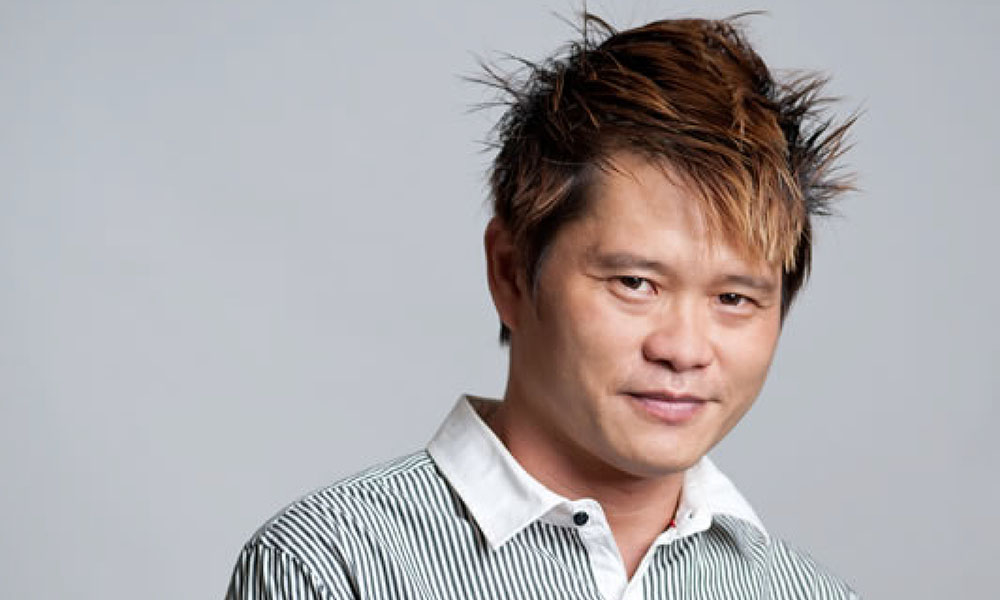By Hui Chun
The Eight Immortals are a group of legendary Taoist deities in Chinese mythology, and the last to join the pantheon was Cao Guojiu. Traditionally regarded as the Chinese deity of acting and theatre, Cao began his life as a mortal in the royal family. He was the younger brother of Empress Cao, the wife of Emperor Renzong (宋仁宗) of the Song dynasty.
Cao had a younger brother named Cao Jingzhi (曹景植), who exploited his royal title by abusing others and engaging in corruption. Cao tried valiantly to reform his younger brother and atone for his brother’s misdeeds, but his recalcitrant younger brother refused to change for the better.
Ashamed and disillusioned, Cao gave up his official career and decided to seek the Tao. He set forth on a journey to the Zhongnan Mountains (周南山), the holy dwelling of Taoists immortals.
Cao travelled until he reached the southern banks of the Yellow River. He tried to board a ferry boat that would take him across the river, but the boatman asked Cao to pay him beforehand.
Feeling his pockets, Cao realised that he had forgotten to bring any money. So he instead presented a gold plaque that the emperor had gifted to him, which read, “Wherever Cao Guojiu goes, it is equivalent to the Emperor making the trip.”
The plaque had a formidable effect on everyone present. Immediately, all the people on the boat threw themselves on the ground and shouted, “Long live Emperor Renzong!”
That is, everyone except for a wandering Taoist. The Taoist puffed his chest, stared hard at Cao, and pointed his jade whisk at Cao’s nose. “You say you want to learn the Tao and become an immortal. Why, then, did you flaunt your gold plaque and use your authority to get your own way?” he thundered.
Cao looked closely at the Taoist, and saw that he was no ordinary mortal. He immediately knelt down and exclaimed, “I, your disciple, would not dare to do so!” He then tossed the gold plaque into the river.
The Taoist waved his whisk, and Cao closed his eyes. He felt his legs leave the ground, and when he opened his eyes, he found himself on the northern bank of the river. Looking across the waters, Cao saw that the ferry boat was still anchored to the southern bank.
The Taoist then said, “I am the immortal Lü Dongbin of the Zhongnan Mountains. As we share a divine affinity, I am here to guide you to immortality.”
Cao was beside himself with excitement. He kowtowed to Lü Dongbin, pleading, “I, your disciple, have seen past the illusion of the human world. I gave up my imperial title and riches, and threw away my gold plaque to demonstrate my commitment to cultivate the Tao. Please take me as your disciple, and bring me to Mount Zhongnan to learn the Tao!”
Lü Dongbin laughed and replied, “How can it be so easy? Mount Zhongnan is a holy place. No ordinary person can enter, particularly a human being like you who has not yet rid himself of the mundane world!” Then, with a wave of his whisk, Lü Dongbin disappeared.
Cao was bitterly disappointed in himself, but he took solace in the fact that Lü Dongbin had said he would guide him to immortality. Kneeling to the Heavens, Cao swore that he would remain single-minded in his quest to attain the Tao, even if it meant going through hardship, torture or sacrificing his life. With renewed purpose, he carried on his journey to Mount Zhongnan.
The Satin Sedan and the Yellow Banner
As a member of the royal family, Cao had become accustomed to a life of luxury. Back home in his mansion, he was never short of expensive clothes or delicacies. Outside, he was always ferried around in a sedan or on a horse by his entourage.
As a result, after a few days of continuous walking, Cao’s feet developed blisters as large as grapes. He had no money for food and lodging, so he had to sell his silk robes and jade belt. He also sold his heavy court boots for a pair of light hemp shoes, to make walking easier.
One day, Cao arrived at Fushui County (扶绥县). He was penniless and had nothing left to sell. Hungry and fatigued, he fell asleep beside a shop house.
Suddenly, he felt someone shaking him. He opened his eyes blearily and saw a palace eunuch. The eunuch exclaimed, “Mr. Cao, we’ve had such a hard time searching for you! Since you left, the Empress has missed you so much that her health has deteriorated. The Emperor has ordered us to invite you back to the capital.”
The eunuch then shouted, “Hurry, Mr. Cao is here!” A sedan of yellow satin immediately appeared, and Cao was pulled, pushed, and carried toward the sedan.
Cao was suddenly wide awake and, remembering his oath to seek the Tao, he violently jerked himself away from the sedan.
The eunuch and sedan disappeared, and in their place a yellow banner drifted down from the sky. On the banner were the following words:
“Attacked by small fires and tempered by large fires,
An elixir cannot form without enduring the nine cycles.
If one does not completely get rid of sentient desires,
One cannot ascend the highest peak of Zhongnan!”
Cao realised that he had just been tested by his teacher Lü Dongbin. Luckily, he had come to his senses in time. If he had stepped into the sedan, all his effort and suffering would have gone to waste.
Cao picked up the banner and tucked it in his robe. He was surprised to find that his sight was clearer and he no longer felt tired and hungry. His footsteps felt as light as air, and he could walk three times faster than before. Greatly encouraged, he carried on with his journey.
The Drowning Boy and the Jade Belt
Cao later arrived at Danfeng County (丹凤县), where he stopped by a clear spring to ask an old man for directions. The old man told him to follow the spring upstream, which would take him to the Zhongnan Mountains.
While walking upstream, Cao saw a young boy being swept downstream. Forgetting that he couldn’t swim very well, Cao jumped into the water to save the boy. Fortunately, a wave washed them to the bank and Cao pulled the boy to safety.
When Cao asked the boy how he fell into the spring, the boy burst into tears and said, “My father is an antique seller who works away from home. Two days ago, he sent a message saying that he had been arrested and imprisoned for purchasing a jade belt. The court suspected that he had stolen it from the palace. While travelling to visit my father in prison, I slipped on a bridge and fell into the water.”
Cao was shocked by the boy’s story. By selling his jade belt, he had implicated an innocent man. He said, “Young man, I was the one who sold the jade belt to your father. I’ll accompany you to the court to provide evidence and exonerate your father.”
“But my benefactor, wouldn’t that delay your important duties?” the young boy asked.
Cao replied, “It is no matter at all! I am an idle person with no responsibilities. It’s more important that we save your father.”
The boy was so grateful that he took out a jade tablet and presented it to Cao. But Cao declined the gift. “It’s my fault that your father is in prison, and it’s my duty to ensure he is released. There’s no reason for me to accept your gift.”
All of a sudden, the boy flew into a rage and threw the jade tablet onto the ground. To Cao’s surprise, the jade tablet transformed into two immortal cranes. The boy vanished, and in his place was a smiling Lü Dongbin. Both master and disciple mounted the immortal cranes, and flew to the Zhongnan Mountains.
Cao had finally attained the Tao and become an immortal. The jade tablet became his divine treasure, and he is always seen holding it. As for the yellow banner and its verse, they became a reminder to Cao of his cultivation journey.

The Eight Immortals. Fourth from the left is Cao Guojiu, who is often depicted wearing imperial robes and carrying a jade plaque. On the far left is Lü Dongbin (吕洞宾), who guided Cao to immortality.
Source: fotolia/illustrations by epoch times

















